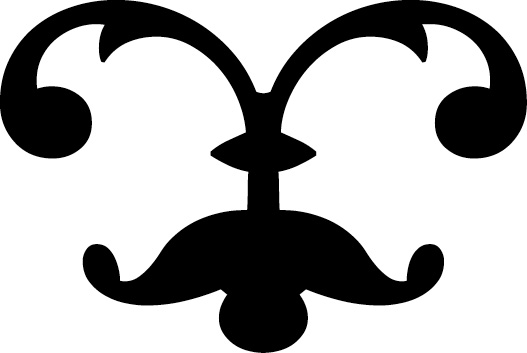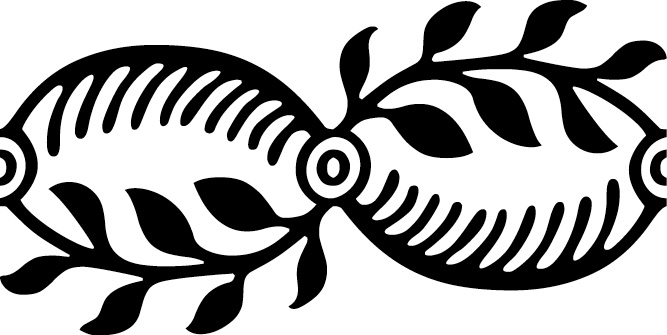The Secrets We Kept (27 page)
Read The Secrets We Kept Online
Authors: Lara Prescott





THE PRIZEWINNER
Boris stands behind a split-rail fence, tending a patch of earth where he had planted winter potatoes, garlic, and leeks. A visitor arrives, and Boris props his hoe against a birch tree.
“My friend,” the visitor says, extending his hand to Boris over the fence.
“It’s here?” Boris asks.
The visitor nods and follows Boris inside.
They sit across from each other at the dining room table. The visitor opens his rucksack and places the book, still in its blue linen cover, in front of its author. Boris reaches for his novel. It is much lighter than the hand-bound manuscript he’d entrusted to foreign hands two years earlier, and much different than the glossy published volume that had become an international bestseller in Europe—a volume he’s seen only in photographs. He runs his dirty fingernails across its cover. His eyes fill with tears. “It’s here,” he says again.
The visitor takes out his second gift—a bottle of vodka. “A toast?” he asks.
“Who did this?” Boris asks.
The visitor pours himself a drink. “They say it was the Americans.”

Boris takes his morning walk. It’s raining, so he takes the tree-covered path through the birch forest back to his dacha instead of his usual route through the cemetery, over the stream, and up the hill. The few dead leaves still clinging to the forest canopy are enough to shield him from the rain. He’s dressed appropriately for the weather, in his raincoat and cap and black rubber boots; but as he nears home, he feels a coldness soak through to his bones.
Boris hears them before he sees them. As he emerges from the woods, he sees cars parked along the narrow street, then the small crowd in his garden, under the cover of black umbrellas. A young man sits atop the section of fence with a rotted board. Boris wants to call out to him to move, but instead he stands as still as a deer who’s seen her hunter before being seen.
He thinks of retreating back into the forest. But someone calls out his name and the crowd moves toward him like a large mammal. The man sitting on the fence jumps down and is the first to reach him. He pulls out a notepad and holds his pen at the ready. “You’ve won,” he says. “You’ve won the Nobel Prize. Any comment for
Pravda
?”
Boris tilts his head to the clouds, letting the cold rain fall on his face.
Here it is,
he thinks. All laid out like a feast. His legacy engraved in gold. But no tears of joy mix with the rain running down his cheeks. Instead, fear comes over him like one of his icy morning baths.
He looks to the far end of his garden, where a gate was torn down twenty years earlier. He imagines his neighbor, Boris Pilnyak, coming through it, excited to share his onion harvest or the latest chapter of his novel. He remembers, later, after that novel was banned and Pilnyak accused of orchestrating its foreign publication, passing his friend’s dacha on his morning walks and seeing him looking out the window, waiting. “They will come for me one day,” Pilnyak had said. And they did.
A flashbulb pops. Boris blinks. He searches for someone familiar in the crowd—someone to hold on to—but sees no one.
“Will you accept?” another reporter asks.
Boris toes his boot into a puddle. “I did not want this to happen, all this noise. I am filled with a great joy. But my joy today is a lonely joy.”
Before the reporters can ask more questions, Boris puts his cap back on. “I do my best thinking while walking, and I need to walk some more.” He cuts through a parting in the crowd and continues back into the forest.
She will know to come,
he thinks.
She will be waiting.
He sees Olga’s red scarf from a distance and a weight is lifted. She’s atop the grassy knoll in the cemetery where the earth has yet to be broken, pacing the length of an invisible grave, her arms folded across her chest. Even now, Boris is still taken aback when he sees her. She’s aged. Lines radiate from the corners of her eyes and her blond hair has become brittle. She’s gained back the weight lost in the camps, but instead of settling back into her hips and thighs, it has gone to her stomach and face. Ever since
Zhivago
was published abroad, she no longer curls her hair or wears jewelry. Perhaps she no longer wants to stand out. Or maybe she is simply too tired to care. Regardless, Boris thinks her even more beautiful.
She runs to meet him. They embrace and he’s enveloped by her, even though she’s the one who fits neatly inside his arms. Her touch is a poultice.
Boris feels Olga holding her breath and rubs her back as if to prompt the exhale. She pulls away and confirms what her body has already told him she is thinking. “What will they do to us now?” she asks.
“It’s a good thing,” he says. “We should be celebrating. They won’t be able to touch us. The world will be watching.”
“Yes,” she says. She looks around the cemetery. “They are watching.”
He kisses her forehead. “It is a good thing,” he repeats, trying to convince himself. He looks in the direction of his dacha. “The vultures are waiting. I must face them.”
“You’ll accept the Prize, then?”
“I don’t know,” he tells her. But he can’t imagine not accepting. His life has led to this precipice; how can he not take this final step, even if into the abyss? If he retreats now, each time his beloved smiles, he will see the chip in her tooth from her days in the camps and will be reminded that it was all in vain.
Olga smooths the front of his jacket, her hand pausing at his heart. “Come to me when you can?”
He places his hand atop hers and presses it deeper into his chest.
The rain has ceased and the crowd has grown. Neighbors have joined the reporters, trampling his potatoes, his garlic, his leeks. A few men in black leather dusters mill about. Zinaida is standing on the side porch with Nina Tabidze, who is visiting from Georgia. They’ve placed two wooden chairs at the bottom of the steps to block entry, and Boris’s dog, Tobik, keeps watch from underneath one.
Zinaida moves a chair to let Boris enter, but Boris pauses to talk to the reporters. Since his meeting with Olga, his spirits have brightened considerably, and although he doesn’t fully believe what he’s told her, the words have soothed him. The congratulations ringing out from the crowd are also a balm. A photographer asks for his picture, and Boris poses for the portrait, a genuine smile across his face.
Zinaida is not smiling. Her heavily penciled eyebrows make her look surprised, but her black frown says otherwise. “Nothing good will come of this,” she says as her husband comes up the stairs.
“People on the streets of Moscow are already talking about it,” Nina says, replacing the wooden chair. “A friend heard it on
Radio Liberation.
”
“Let’s go inside,” Boris says.
Once inside, the smell of plum pie greets them and Boris remembers that it is Zinaida’s name day. “My dear,” he says. “I’m so sorry. In all this commotion, I’ve somehow forgotten.”
“It doesn’t matter now,” she replies.
Nina touches Zinaida’s shoulder, then goes to the kitchen to take the pie out of the oven.
The couple stands alone in the entryway. “You are not happy for me, Zina? For us?”
“What will happen to us?”
“What nonsense. We should be celebrating. Nina!” he calls to the kitchen. “Bring out a bottle of wine.”
“It’s not a time for celebrating,” Zinaida says. “They’ll want your head for this. First you give your manuscript to foreign hands, without its being published here? Now this? The attention, the outcry. No good can come of this.”
“If you cannot bring yourself to muster congratulations, at least have a drink for your name day.”
“What does it matter? You forgot it last year too.”
Nina returns from the kitchen holding a bottle of wine and three glasses, but Zinaida waves her away and retires to her bedroom. Nina goes to comfort her friend, and Boris opens the bottle himself.
The next day, Boris’s neighbor, the author Konstantin Aleksandrovich Fedin, knocks on the door, and Zinaida opens it. “Where is he?” Fedin asks. Without waiting for an answer, he bypasses Zinaida and takes the stairs up to Boris’s study, two steps at a time.
Boris looks up from a stack of telegrams. “Kostya,” he greets his friend. “To what do I owe this visit?”
“I am not here to offer you congratulations. I’m not here as your neighbor or friend. I’m here on official business. Polikarpov is at my house right now waiting for an answer.”
“An answer to what?”
Fedin scratches his bushy white eyebrows. “Whether you will renounce the Prize.”
Boris throws down the telegram he’s holding. “Under no circumstances.”
“If you don’t do it willingly, they will force your hand. You know this.”
“They can do what they want with me.”
Fedin walks to the window overlooking the garden. A few reporters have returned. He slicks his hand over his widow’s peak. “You know what they can…I lived through it as well. As a friend—”
“But remember, you are not here as my friend,” Boris interrupts. “So what are you here as, exactly?”
“A fellow writer. A citizen.”
Boris lowers himself to his bed, the simple metal frame creaking under his weight. “Which is it? A writer or a citizen?”
“I am both. And you are as well.”
It was widely known that Fedin was next in line to serve as chair of the Soviet Writers’ Union, so Boris thinks through his answer carefully.
“Inventas vitam juvat excoluisse per artes.”
“From Virgil,” Fedin says. “And they who bettered life on earth by their newly found mastery.”
“It’s engraved on the Nobel medal.”
“Whose life have you bettered with this novel? Your family’s?” Fedin lowers his voice. “Your mistress’s? Or simply your own?”
Boris closes his eyes. “Give me time.”
“There isn’t any time. Polikarpov is expecting an answer when I return.”
“Then take a long walk before you go home. I need time.”
“Two hours,” Fedin says from the doorway. “You have two hours.”
But as soon as Fedin leaves, Boris gets up from his bed. He goes to his desk and composes a telegram to the Swedish Academy.
IMMENSELY GRATEFUL, TOUCHED, PROUD, ASTONISHED, ABASHED.
—Pasternak.
